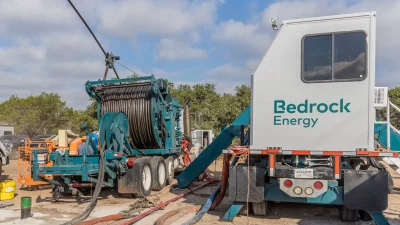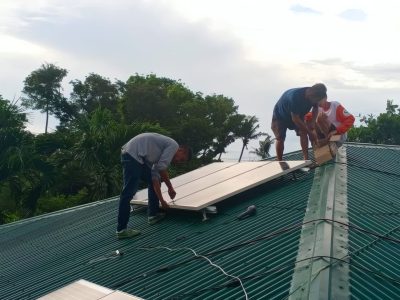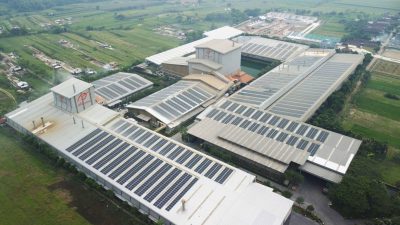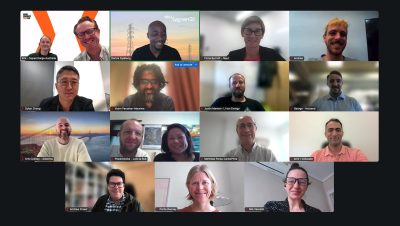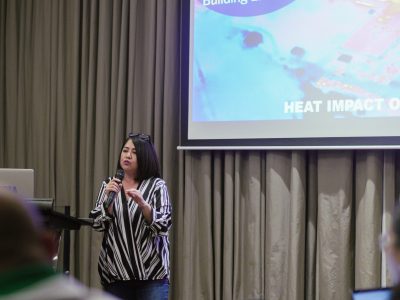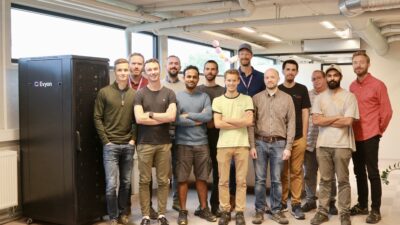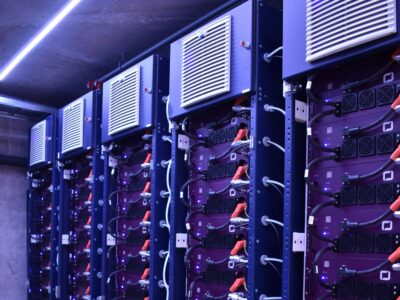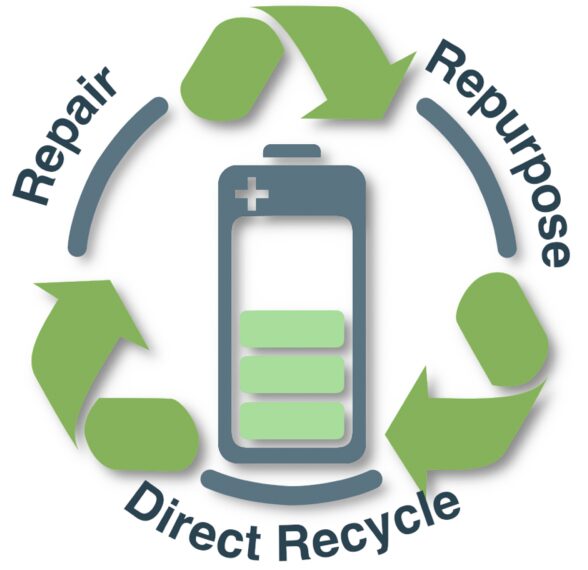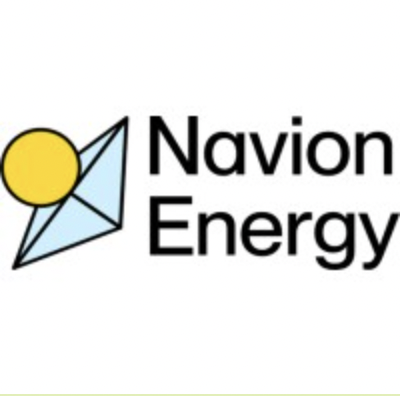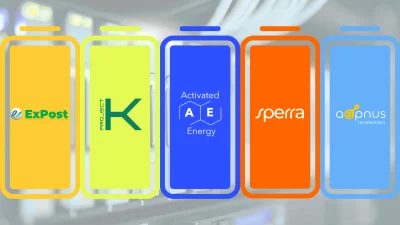
A report from the International Energy Agency found that 35 percent of emissions reductions needed to reach net zero depend on technology that has yet to be commercialized. That’s why supporting early-stage clean energy innovators is critical to the energy transition and reducing emissions.
California’s clean energy transition depends on better energy storage; some of the most exciting breakthroughs are happening now. The latest CalSEED Prototype Award winners are tackling big questions about battery lifespan, recyclability, and how we store power more efficiently and sustainably.
From next-gen potassium-ion batteries to innovative battery recycling techniques, these startups are reshaping energy storage. Let’s look at five game-changing solutions in battery storage:
1. ExPost Technology: Giving Batteries a Second Life
We rely on lithium-ion batteries for everything from smartphones to electric vehicles, but what happens when they reach the end of their life? ExPost Technology is rethinking battery recycling—a process that extracts valuable materials without fully breaking down components.. This means less waste, fewer new materials needed, and a stronger circular economy for batteries—something we’ll need as energy storage demand skyrockets.
Using Purification and Regeneration Integrated Materials Engineering (PRIME), ExPost recovers pristine quality battery components from battery scraps and end-of-life batteries. With its prominent economic, efficient, and eco-friendly process, this scalable method has the potential to reshape the battery recycling industry.
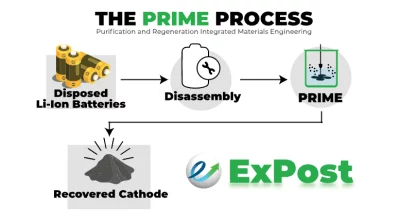
Photo from ExPost Technology
2. Project K Energy: Making Lithium-Free Batteries a Reality
Lithium has long been the go-to material for batteries, but it’s expensive and difficult to source sustainably. Project K Energy is developing potassium-ion batteries—a cheaper, longer-lasting alternative for large-scale energy storage. Since potassium is much more abundant than lithium, this technology has the potential to cut costs and make clean energy storage more accessible. Project K’s innovation lies in optimizing potassium-based cathode, anode, and electrolyte components with fundamentally different properties than their lithium-ion counterparts.
The potential benefits of these potassium-ion batteries include faster charging, lower costs (and less price volatility), better performance at low temperatures, and improved safety.
3. Activated Energy: A Safer, More Sustainable Way to Store Power
Battery safety is a huge concern, especially when dealing with flammable or toxic materials. Activated Energy is reimagining energy storage—making it safer, sustainable, and even carbon-negative. Their innovative solid-state system stores energy by compressing carbon dioxide using eco-friendly materials, creating a compact solution that’s both scalable and long-lasting.
Activated Energy’s product builds on compressed air energy storage (CAES) and CO2 energy storage combined with innovative solid-state sorption technology. It has reduced costs and sourcing concerns, as well as increased stability over lithium technologies. In addition to being non-toxic and nonflammable, the proprietary low-pressure storage technology reduces the footprint of the storage system, making it more suitable for congested urban environments than competing large-footprint gas-based storage systems, which require land resources most likely unavailable in urban areas. This long-duration energy storage system improves grid resilience for urban communities, reduces strain on electrical transmission lines, is non-flammable, and enables greater renewable energy adoption.
4. Sperra: Storing Energy Beneath the Ocean
One of the biggest challenges with renewable energy is ensuring we can store power when it is needed most. Sperra has a fascinating solution: Marine Pumped Hydroelectric (MPH) Storage. They’re designing 3D-printed concrete spheres on the ocean floor that store and release energy in sync with offshore wind farms. Unlike traditional energy storage, this system could last decades without losing efficiency.
This approach bypasses the land use and permitting challenges that often limit pumped hydro projects. It can be deployed along coastlines or paired directly with offshore wind farms to boost efficiency and lower costs. With innovations like their patented multi-sphere “pod” design, automated 3D-printed manufacturing, and shared infrastructure with other ocean energy projects, Sperra is creating a new, cost-effective path for long-duration energy storage beneath the waves.
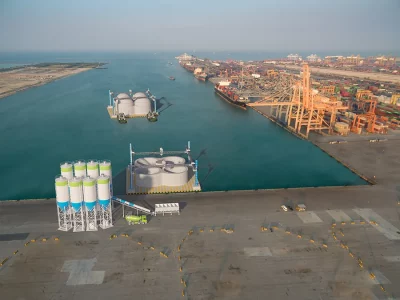
Sperra’s SPSH systems are designed to be manufactured in 2 MW to 5 MW modules in US ports using locally available materials and labor. Photo from Sperra
5. Aepnus Technology: Cleaning Up Battery Manufacturing
It’s not just about how long batteries last—how they’re made also matters. Aepnus Technology is working on a cleaner, more cost-effective way to produce lithium salts and other battery materials. By making the production process more sustainable, they’re helping reduce the overall carbon footprint of energy storage systems from the start.
Aepnus Technology’s innovation uses electricity instead of fossil fuel-based chemicals, reducing waste disposal costs and mitigating carbon emissions, especially when powered by renewable energy. By integrating the system on-site, manufacturers can cut waste disposal costs and achieve up to 35% savings on chemical expenditures. This solution enhances the sustainability and circularity of the battery industry while addressing critical chemical management challenges and contributing to the decarbonization of emissions-heavy chemical manufacturing processes.
Aepnus’s ultra-efficient electrolyzers run on renewable energy to process essential materials like lithium salts and other reagents. They are advancing a novel electrolysis platform that recycles sodium sulfate—a common chemical waste in the battery supply chain—into valuable reagents (sulfuric acid and caustic soda), essential for refining battery metals and manufacturing cathode active materials.
Where Energy Storage Is Headed
The energy storage industry is evolving fast, and these companies are leading the charge toward longer-lasting, more sustainable solutions. Whether it’s recycling old batteries, developing new materials, or rethinking how we store power, these innovations will be critical in the clean energy transition.
A future energy system won’t just rely on making better batteries—it’ll depend on keeping valuable materials in use through smart recycling and circular design. With continued investment and support, we’re looking at a future where energy storage isn’t just an afterthought—it’s a key pillar of a cleaner, more resilient, and circular power system. If these startups are any indication, the best is yet to come.
